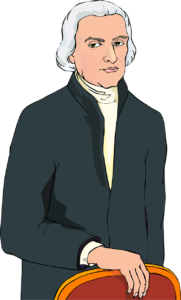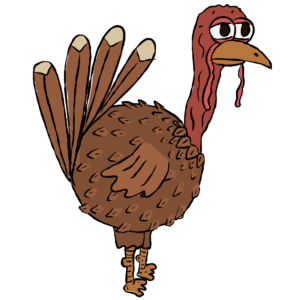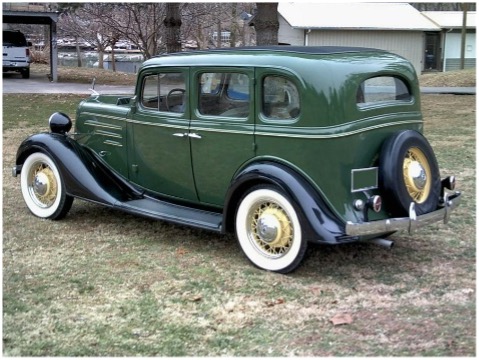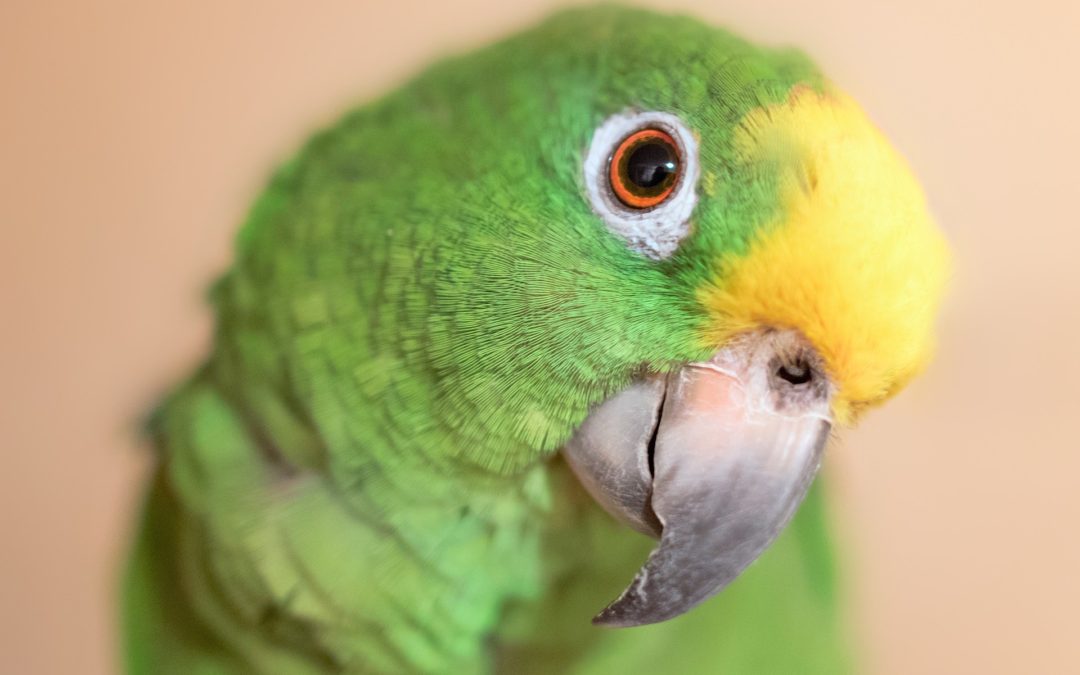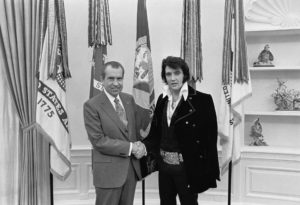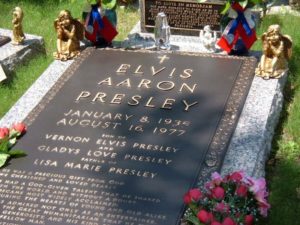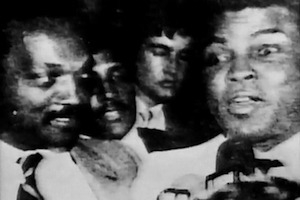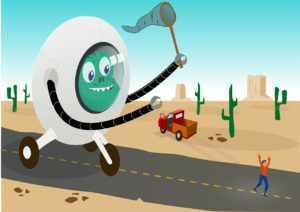compiled by Judy Ratto
COMMAS
Commas and periods are the most frequently used punctuation marks.
Commas customarily indicate a brief pause; they’re not as final as periods.
Rule 1. Use commas to separate words and word groups in a simple series of three or more items.
Example: My estate goes to my husband, son, daughter-in-law, and nephew.
Note: When the last comma in a series comes before and or or (after daughter-in-law in the above example), it is known as the Oxford comma. Most newspapers and magazines drop the Oxford comma in a simple series, apparently feeling it’s unnecessary. However, omission of the Oxford comma can sometimes lead to misunderstandings.
Example: We had coffee, cheese and crackers and grapes.
Adding a comma after crackers makes it clear that cheese and crackers represents one dish. In cases like this, clarity demands the Oxford comma.
We had coffee, cheese and crackers, and grapes.
Fiction and nonfiction books generally prefer the Oxford comma. Writers must decide Oxford or no Oxford and not switch back and forth, except when omitting the Oxford comma could cause confusion as in the cheese and crackers example.
Rule 2. Use a comma to separate two adjectives when the adjectives are interchangeable.
Example: He is a strong, healthy man.
We could also say healthy, strong man.
Example: We stayed at an expensive summer resort.
We would not say summer expensive resort, so no comma.
Rule 3a. Many inexperienced writers run two independent clauses together by using a comma instead of a period. This results in the dreaded run-on sentence or, more technically, a comma splice.
Incorrect: He walked all the way home, he shut the door.
There are several simple remedies:
Correct: He walked all the way home. He shut the door.
Correct: After he walked all the way home, he shut the door.
Correct: He walked all the way home, and he shut the door.
Rule 3b. In sentences where two independent clauses are joined by connectors such as and, or, but, etc., put a comma at the end of the first clause.
Incorrect: He walked all the way home and he shut the door.
Correct: He walked all the way home, and he shut the door.
Some writers omit the comma if the clauses are both quite short:
Example: I paint and he writes.
Rule 3c. If the subject does not appear in front of the second verb, a comma is generally unnecessary.
Example: He thought quickly but still did not answer correctly.
Rule 4a. Use a comma after certain words that introduce a sentence, such as well, yes, why, hello, hey, etc.
Examples:
Why, I can’t believe this!
No, you can’t have a dollar.
Rule 4b. Use commas to set off expressions that interrupt the sentence flow (nevertheless, after all, by the way, on the other hand, however, etc.).
Example: I am, by the way, very nervous about this.
Rule 5. Use commas to set off the name, nickname, term of endearment, or title of a person directly addressed.
Examples:
Will you, Aisha, do that assignment for me?
Yes, old friend, I will.
Good day, Captain.
Rule 6. Use a comma to separate the day of the month from the year, and—what most people forget!—always put one after the year, also.
Example: It was in the Sun’s June 5, 2003, edition.
No comma is necessary for just the month and year.
Example: It was in a June 2003 article.
Rule 7. Use a comma to separate a city from its state, and remember to put one after the state, also.
Example: I’m from the Akron, Ohio, area.
Rule 8. Traditionally, if a person’s name is followed by Sr. or Jr., a comma follows the last name: Martin Luther King, Jr. This comma is no longer considered mandatory. However, if a comma does precede Sr. or Jr., another comma must follow the entire name when it appears midsentence.
Correct: Al Mooney Sr. is here.
Correct: Al Mooney, Sr., is here.
Incorrect: Al Mooney, Sr. is here.
Rule 9. Similarly, use commas to enclose degrees or titles used with names.
Example: Al Mooney, M.D., is here.
Rule 10. When starting a sentence with a dependent clause, use a comma after it.
Example: If you are not sure about this, let me know now.
But often a comma is unnecessary when the sentence starts with an independent clause followed by a dependent clause.
Example: Let me know now if you are not sure about this.
Rule 11. Use commas to set off nonessential words, clauses, and phrases (see the “Who, That, Which” section in Chapter One, Rule 2b).
Incorrect: Jill who is my sister shut the door.
Correct: Jill, who is my sister, shut the door.
Incorrect: The man knowing it was late hurried home.
Correct: The man, knowing it was late, hurried home.
In the preceding examples, note the comma after sister and late. Nonessential words, clauses, and phrases that occur midsentence must be enclosed by commas. The closing comma is called an appositive comma. Many writers forget to add this important comma. Following are two instances of the need for an appositive comma with one or more nouns.
Incorrect: My best friend, Joe arrived.
Correct: My best friend, Joe, arrived.
Incorrect: The three items, a book, a pen, and paper were on the table.
Correct: The three items, a book, a pen, and paper, were on the table.
Rule 12. If something or someone is sufficiently identified, the description that follows is considered nonessential and should be surrounded by commas.
Examples:
Freddy, who has a limp, was in an auto accident.
If we already know which Freddy is meant, the description is not essential.
The boy who has a limp was in an auto accident.
We do not know which boy is meant without further description; therefore, no commas are used.
This leads to a persistent problem. Look at the following sentence:
Example: My brother Bill is here.
Now, see how adding two commas changes that sentence’s meaning:
Example: My brother, Bill, is here.
Careful writers and readers understand that the first sentence means I have more than one brother. The commas in the second sentence mean that Bill is my only brother.
Why? In the first sentence, Bill is essential information: it identifies which of my two (or more) brothers I’m speaking of. This is why no commas enclose Bill.
In the second sentence, Bill is nonessential information—whom else but Bill could I mean?—hence the commas.
Comma misuse is nothing to take lightly. It can lead to a train wreck like this:
Example: Mark Twain’s book, Tom Sawyer, is a delight.
Because of the commas, that sentence states that Twain wrote only one book. In fact, he wrote more than two dozen of them.
Rule 13a. Use commas to introduce or interrupt direct quotations.
Examples:
He said, “I don’t care.”
“Why,” I asked, “don’t you care?”
This rule is optional with one-word quotations.
Example: He said “Stop.”
Rule 13b. If the quotation comes before he said, she wrote, they reported, Dana insisted, or a similar attribution, end the quoted material with a comma, even if it is only one word.
Examples:
“I don’t care,” he said.
“Stop,” he said.
Rule 14. Use a comma to separate a statement from a question.
Example: I can go, can’t I?
Rule 15. Use a comma to separate contrasting parts of a sentence.
Example: That is my money, not yours.
Rule 16a. Use a comma before and after certain introductory words or terms, such as namely, that is, i.e., e.g., and for instance, when they are followed by a series of items.
Example: You may be required to bring many items, e.g., sleeping bags, pans, and warm clothing.
Rule 16b. Commas should precede the term etc. and enclose it if it is placed midsentence.
Example: Sleeping bags, pans, warm clothing, etc., are in the tent.
INTERNAL DIALOGUE: ITALICS OR QUOTES?
Internal dialogue is used by authors to indicate what a character is thinking.
Direct internal dialogue refers to a character thinking the exact thoughts as written, often in the first person. (The first person singular is I, the first person plural is we.)
Example: “I lied,” Charles thought, “but maybe she will forgive me.”
Notice that quotation marks and other punctuation are used as if the character had spoken aloud.
You may also use italics without quotation marks for direct internal dialogue.
Example: I lied, Charles thought, but maybe she will forgive me.
J Ratto note: It has become more accepted to use italics without a tag.
Example: I lied, but maybe she will forgive me.
Indirect internal dialogue refers to a character expressing a thought in the third person (the third person singular is he or she, the plural is they) and is not set off with either italics or quotation marks.
Example: Bev wondered why Charles would think that she would forgive him so easily.
The sense of the sentence tells us that she did not think these exact words.
WRITING NUMBERS
Except for a few basic rules, spelling out numbers vs. using figures (also called numerals) is largely a matter of writers’ preference. Again, consistency is the key.
Policies and philosophies vary from medium to medium. The two most influential guidebooks for publishers, editors, and writers, the Associated Press Stylebook and the Chicago Manual of Style, have different approaches.
The first recommends spelling out the numbers one through nine and using figures thereafter; Chicago recommends spelling out the numbers one through ninety-nine and using figures thereafter.
This is a complex topic, with many exceptions, and there is no consistency we can rely on among blogs, books, newspapers, and magazines. This chapter will confine itself to rules that all media seem to agree on.
Rule 1. Spell out all numbers beginning a sentence.
Examples:
Twenty-three hundred sixty-one victims were hospitalized.
Nineteen fifty-six was quite a year.
Note: The Associated Press Stylebook makes an exception for years.
Example: 1956 was quite a year.
Rule 2a. Hyphenate all compound numbers from twenty-one through ninety-nine.
Examples:
Forty-three people were injured in the train wreck.
Twenty-seven of them were hospitalized.
Rule 2b. Hyphenate all written-out fractions.
Examples:
We recovered about two-thirds of the stolen cash.
One-half is slightly less than five-eighths.
Rule 3a. With figures of four or more digits, use commas. Count three spaces to the left to place the first comma. Continue placing commas after every three digits. Important: do not include decimal points when doing the counting.
Examples:
1,054 people
$2,417,592.21
Rule 3b. It is not necessary to use a decimal point or a dollar sign when writing out sums of less than a dollar.
Not Advised: He had only $0.60.
Better:
He had only sixty cents.
OR
He had only 60 cents.
Rule 4a. For clarity, use noon and midnight rather than 12:00 PM and 12:00 AM.
NOTE
AM and PM are also written A.M. and P.M., a.m. and p.m., and am and pm. Some put a space between the time and AM or PM.
Examples:
8 AM
3:09 P.M.
11:20 p.m.
Others write times using no space before AM or PM.
Example:
8AM
3:09P.M.
11:20p.m.
For the top of the hour, some write 9:00 PM, whereas others drop the :00 and write 9 PM (or 9 p.m., 9pm, etc.).
Rule 4b. Using numerals for the time of day has become widely accepted.
Examples:
The flight leaves at 6:22 a.m.
Please arrive by 12:30 sharp.
However, some writers prefer to spell out the time, particularly when using o’clock.
Examples:
She takes the four thirty-five train.
The baby wakes up at five o’clock in the morning.
ELLIPSIS
Definition:An ellipsis (plural: ellipses) is a punctuation mark consisting of three dots.
Use an ellipsis when omitting a word, phrase, line, paragraph, or more from a quoted passage. Ellipses save space or remove material that is less relevant. They are useful in getting right to the point without delay or distraction:
Full quotation: “Today, after hours of careful thought, we vetoed the bill.”
With ellipsis: “Today…we vetoed the bill.”
Although ellipses are used in many ways, the three-dot method is the simplest. Newspapers, magazines, and books of fiction and nonfiction use various approaches that they find suitable.
Some writers and editors feel that no spaces are necessary.
Example: I don’t know…I’m not sure.
Others enclose the ellipsis with a space on each side.
Example: I don’t know … I’m not sure.
Still others put a space either directly before or directly after the ellipsis.
Examples:
I don’t know …I’m not sure.
I don’t know… I’m not sure.
A four-dot method and an even more rigorous method used in legal works require fuller explanations that can be found in other reference books.
Rule 1. Many writers use an ellipsis whether the omission occurs at the beginning of a sentence, in the middle of a sentence, or between sentences.
A common way to delete the beginning of a sentence is to follow the opening quotation mark with an ellipsis, plus a bracketed capital letter:
Example: “…[A]fter hours of careful thought, we vetoed the bill.”
Other writers omit the ellipsis in such cases, feeling the bracketed capital letter gets the point across.
For more on brackets, see “Parentheses and Brackets.”
Rule 2. Ellipses can express hesitation, changes of mood, suspense, or thoughts trailing off. Writers also use ellipses to indicate a pause or wavering in an otherwise straightforward sentence.
Examples:
I don’t know…I’m not sure.
Pride is one thing, but what happens if she…?
He said, “I…really don’t…understand this.”
____________________________
DASHES
Dashes, like commas, semicolons, colons, ellipses, and parentheses, indicate added emphasis, an interruption, or an abrupt change of thought.
Experienced writers know that these marks are not interchangeable.
Note how dashes subtly change the tone of the following sentences:
Examples:
You are the friend, the only friend, who offered to help me.
You are the friend—the only friend—who offered to help me.
I pay the bills; she has all the fun.
I pay the bills—she has all the fun.
I wish you would…oh, never mind.
I wish you would—oh, never mind.
Rule 1. Words and phrases between dashes are not generally part of the subject.
Example: Joe—and his trusty mutt—was always welcome.
Rule 2. Dashes replace otherwise mandatory punctuation, such as the commas after Iowa and 2013 in the following examples:
Without dash: The man from Ames, Iowa, arrived.
With dash: The man—he was from Ames, Iowa—arrived.
Without dash: The May 1, 2013, edition of the Ames Sentinel arrived in June.
With dash: The Ames Sentinel—dated May 1, 2013—arrived in June.
Rule 3. Some writers and publishers prefer spaces around dashes.
Example: Joe — and his trusty mutt — was always welcome.
_____________________________
EXCLAMATION POINTS
Rule 1. Use an exclamation point to show emotion, emphasis, or surprise.
Examples:
I’m truly shocked by your behavior!
Yay! We won!
Rule 2. An exclamation point replaces a period at the end of a sentence.
Incorrect: I’m truly shocked by your behavior!.
Rule 3. Do not use an exclamation point in formal business writing.
Rule 4. Overuse of exclamation points is a sign of undisciplined writing. Do not use even one of these marks unless you’re convinced it is justified.
QUOTATION MARKS
The rules set forth in this section are customary in the United States. Great Britain and other countries in the Commonwealth of Nations are governed by quite different conventions. Nowhere is this more apparent than in Rule 3a in this section, a rule that has the advantage of being far simpler than Britain’s and the disadvantage of being far less logical.
Rule 1. Use double quotation marks to set off a direct (word-for-word) quotation.
Correct: “When will you be here?” he asked.
Incorrect: He asked “when I would be there.”
Rule 2. Either quotation marks or italics are customary for titles: magazines, books, plays, films, songs, poems, article titles, chapter titles, etc.
Rule 3a. Periods and commas always go inside quotation marks.
Examples:
The sign said, “Walk.” Then it said, “Don’t Walk,” then, “Walk,” all within thirty seconds.
He yelled, “Hurry up.”
Rule 3b. Use single quotation marks for quotations within quotations.
Example: He said, “Dan cried, ‘Do not treat me that way.’ “
Note that the period goes inside both the single and double quotation marks.
J Ratto note: Whether all the punctuation is placed within the quotes depends on the punctuation of the main sentence.
Example: He said, “Dan asked, ‘Must you treat me that way?’”
Here the question mark is part of the quoted phrase, so is placed inside the single and double quotations.
He asked, “Do you agree with Dan that ‘he should be treated better’?”
Here the question mark is part of the whole (main) sentence, so is placed outside the single quote but inside the closing quotation marks.
Rule 4. As a courtesy, make sure there is visible space at the start or end of a quotation between adjacent single and double quotation marks. (Your word processing program may do this automatically.)
Not ample space: He said, “Dan cried, ‘Do not treat me that way.'”
Ample space: He said, “Dan cried, ‘Do not treat me that way.’ “
J Ratto note: I haven’t noticed this extra space in the novels I read, so not sure this is a universal rule.
Rule 5a. Quotation marks are often used with technical terms, terms used in an unusual way, or other expressions that vary from standard usage.
Examples:
It’s an oil-extraction method known as “fracking.”
He did some “experimenting” in his college days.
I had a visit from my “friend” the tax man.
Rule 5b. Never use single quotation marks in sentences like the previous three.
Incorrect: I had a visit from my ‘friend’ the tax man.
The single quotation marks in the above sentence are intended to send a message to the reader that friend is being used in a special way: in this case, sarcastically. Avoid this invalid usage. Single quotation marks are valid only within a quotation, as per Rule 3b, above.
Rule 6. When quoted material runs more than one paragraph, start each new paragraph with opening quotation marks, but do not use closing quotation marks until the end of the passage.
Example: She wrote: “I don’t paint anymore. For a while I thought it was just a phase that I’d get over.
“Now, I don’t even try.”
THE EM DASH
The em dash is the long dash that used to be shown, back in pre-computer days, by typing two hyphens.
Those who use Word can make use of the program’s “auto correct” feature to replace an old-fashioned two-hyphen em dash with an actual em dash (—).
First let’s consider one character being interrupted by another. Here’s an example.
“You don’t get what I’m saying, Tiff, but if you’d just let me expl—”
“I get it all right. You never want to do what I want.”
To show the angry wife cutting off her husband, I used an em dash. When one comes at the end of a sentence like this, it’s followed by the close quotation mark. No period or other punctuation is used.
The second example involves the writer interrupting a line of dialogue to insert an action beat, tag, or other information.
“I’ve waited years for my first publishing contract, and now that it’s here”—her voice broke—“I hardly have words to describe my how I feel.”
To show the emotional state of the jubilant writer, I broke into the sentence with an action beat. The dialogue goes inside the quotation marks, and the em dashes setting off the break go outside of them. Note that an em dash used in this case butts up against the quotation mark on one side and the text on the other with no spaces in between.
When it comes to showing interrupted dialogue in either of the cases I’ve covered, think of a car screeching to a halt, leaving a long black trail of rubber on the asphalt. The em dash is the literary equivalent of a skid mark, showing an abrupt stop in the dialogue.
Rules are made to be broken, but more often they are made to be followed, because violation of those rules, in writing as in any other human endeavor, often leads to unintended consequences.
SCARE QUOTES
One case is the careless use of quotation marks for emphasis.
Scare quotes, as quotation marks employed for this purpose are called, are often used to call out nonstandard or unusual terms, or merely to introduce a word or phrase.
However, although this strategy used to be common, scare quotes have taken on a new role that has largely, at least among careful writers, supplanted the old technique:
Now, they are better employed to convey derision, irony, or skepticism.
For example, a writer who describes how “the institute offers workshops in ‘self-awareness therapy’” is widely presumed not to be gently preparing the reader for the appearance of an unfamiliar phrase; more likely, they are calling attention to what they feel is preciously New Age-y terminology.
Meanwhile, the statement “The Pentagon’s strategy of ‘pacification’ certainly did make things quieter in the neighborhood” comments on the evasive military euphemism, while “The ‘new’ model strikes me as less sophisticated than the old one” calls attention to an unjustified adjective.
Here are three types of superfluous usage of scare quotes:
1. The astronomers reported Tuesday that they had combined more than 6,000 observations from three telescopes to detect the system of
“exoplanets.”
Exoplanets is a term that has only recently entered the general vocabulary, but neologism is not a criterion for use of scare quotes; simply introduce the word, define it, and move on: “The astronomers reported Tuesday that they had combined more than 6,000 observations from three telescopes to detect the system of exoplanets.” (In the article from which this sentence is taken, a definition of exoplanet follows the statement.)
2. They engaged in listening exercises and musical analysis so as to better understand the “musical DNA” of their favorite songs.
If you use an established term in an unfamiliar but analogous sense, trust readers to make the connection; don’t bracket the term in scare quotes:
“They engaged in listening exercises and musical analysis so as to better understand the musical DNA of their favorite songs.”
3. So-called “notification laws” require businesses to notify customers when certain unencrypted customer data is improperly accessed.
Never employ scare quotes around a term introduced by the phrase so-called. Yes, you may want to signal to readers your dissatisfaction with the term, but so-called performs that function, so scare quotes are redundant:
“So-called notification laws require businesses to notify customers when certain unencrypted customer data is improperly accessed.”





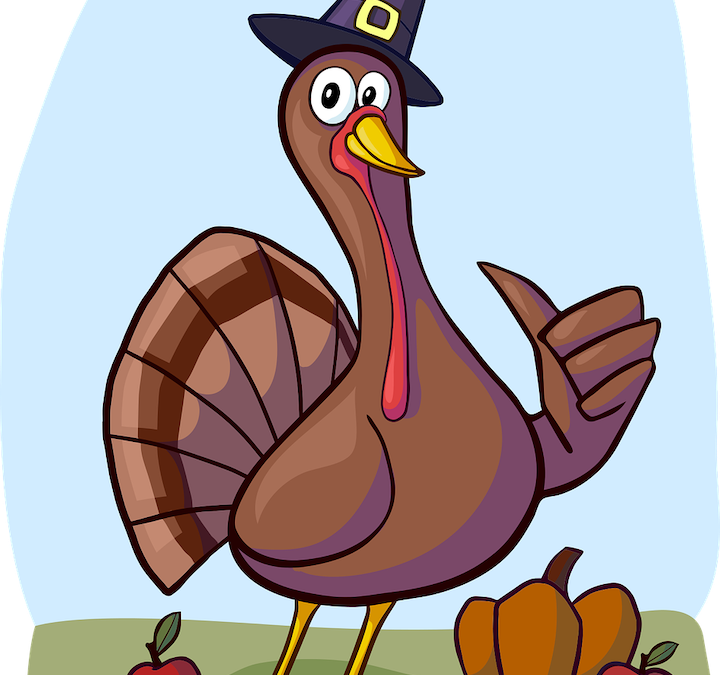

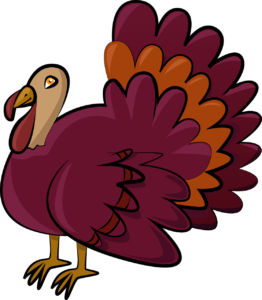
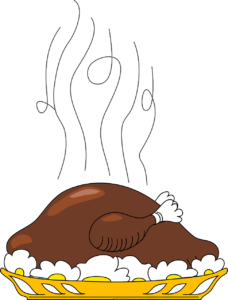 He continued the lesson. “It was a disaster for the descendants of Tom and Henrietta, who are now the main course of most Thanksgiving dinners. On that day, humans stuff themselves with food to the bursting point, then fall asleep afterwards. Before their holiday season is over, many of them will amass a good deal of body weight, I suppose in the manner of our fattened cousins.”
He continued the lesson. “It was a disaster for the descendants of Tom and Henrietta, who are now the main course of most Thanksgiving dinners. On that day, humans stuff themselves with food to the bursting point, then fall asleep afterwards. Before their holiday season is over, many of them will amass a good deal of body weight, I suppose in the manner of our fattened cousins.”
 “Well, it’s uncertain Franklin’s proposal was serious. Some say he suggested it to annoy Thomas Jefferson, who wouldn’t eat turkey–it upset his stomach and made him break out in a rash.”
“Well, it’s uncertain Franklin’s proposal was serious. Some say he suggested it to annoy Thomas Jefferson, who wouldn’t eat turkey–it upset his stomach and made him break out in a rash.”